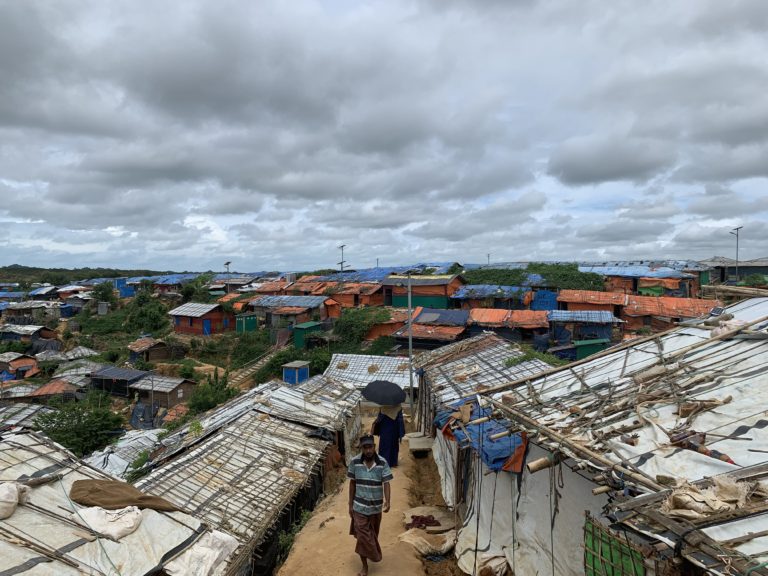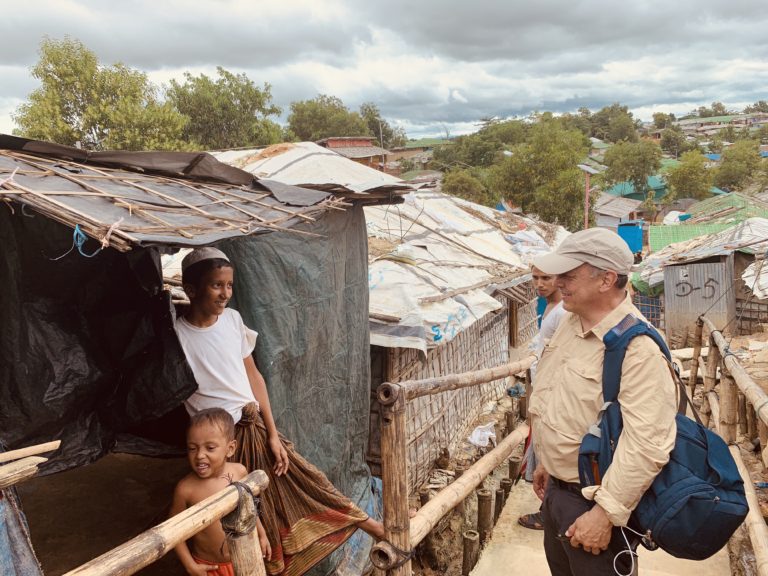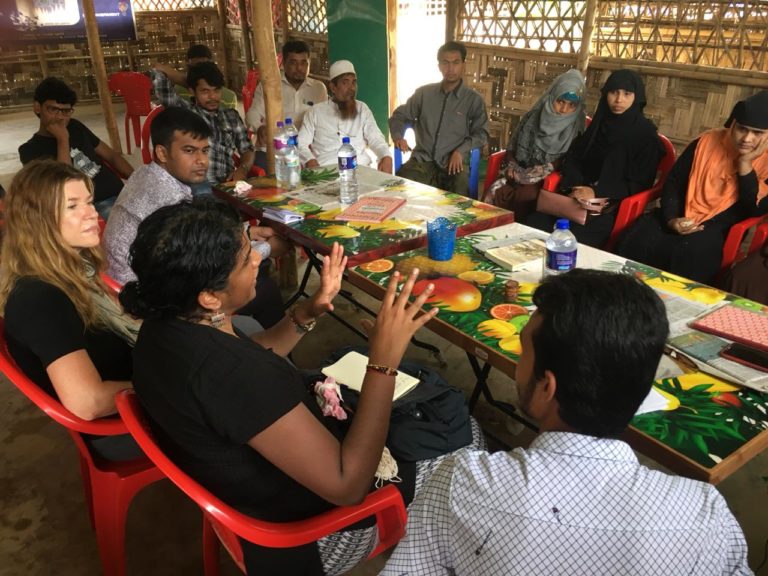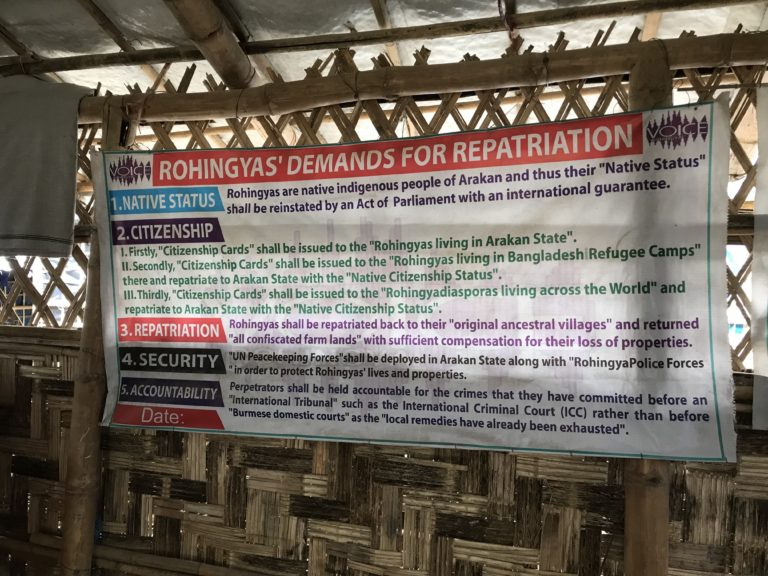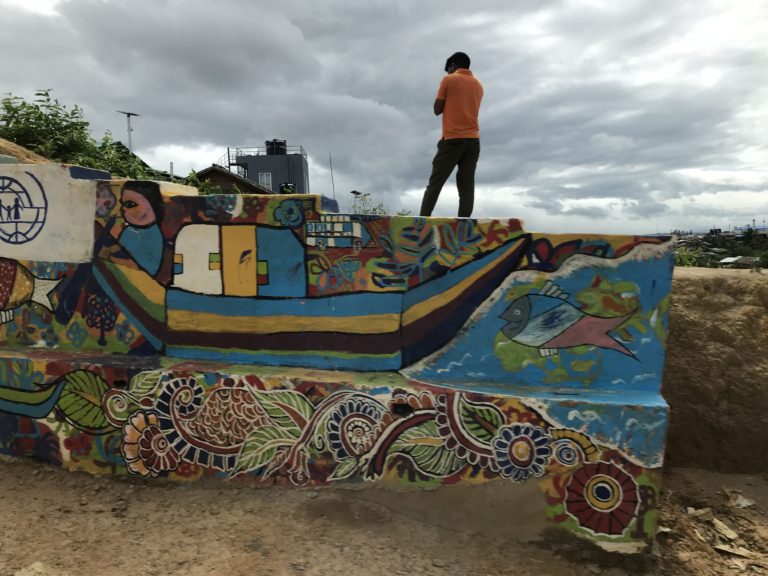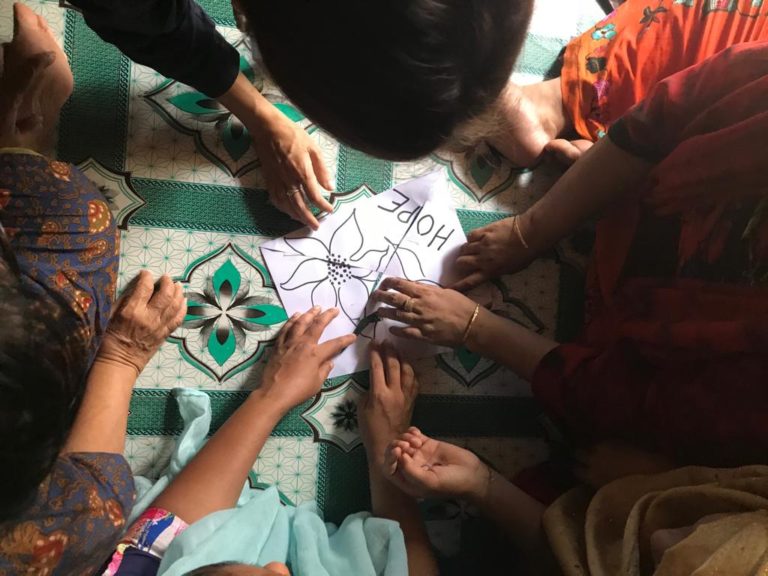Documenting the Rohingya Crisis
In collaboration with local partners, GIJTR is working in the Rohingya refugee camps in Bangladesh to build the capacity of local activists to document and archive evidence of human rights abuses committed in the Rakhine State. The GIJTR is also supporting Rohingya and Bangladeshi civil society in transitional justice processes and memorialization efforts to help survivors heal and shape their future.
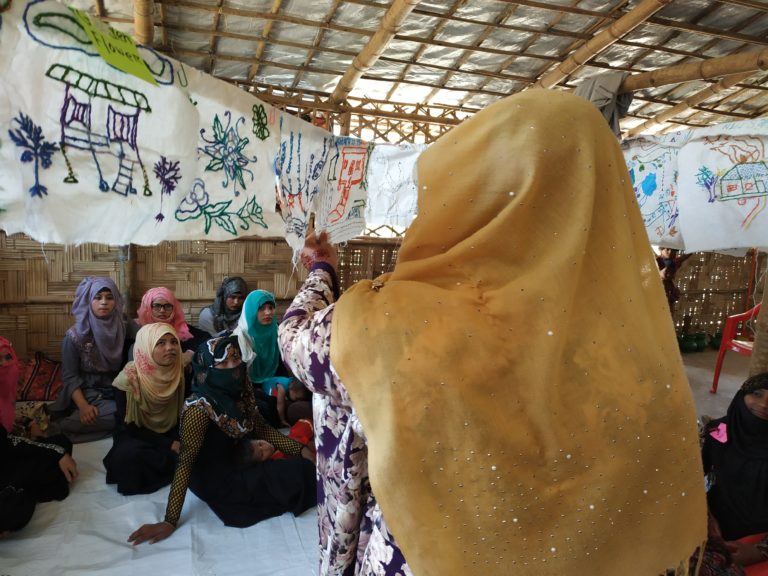
Context
According to the UN Refugee Agency (UNHCR), nearly one million members of the Rohingya community have relocated to Bangladesh since August 2017, fleeing persecution in Rakhine State, Myanmar. Prior to this, the Rohingya community, a Muslim ethnic minority with their own language and culture, had already been subjected to decades of discriminatory laws, escalating isolation, threats and abuse which resulted in waves of displacement. Refugees are now reporting mass killing, enforced disappearances, rape, torture, and other violations committed by the Tatmadaw as the impetus behind the most recent mass exodus – the largest forced human migration in recent history. UNHCR reports that the majority of these refugees are women and children – with more than 40 percent under the age of 12.
Project Details
The GIJTR project in Bangladesh focuses on strengthening survivors’ and local civil society actors’ capacity to engage in and advocate for accountability and other forms of transitional justice through a holistic and multidisciplinary program. The project focuses on bolstering Rohingya civil society’s sustained ability to recognize and document gross human rights violations stemming from violence in Rakhine State in a credible, professional and standardized manner. In parallel, the project works on strengthening the participation of Rohingya survivors and leaders in efforts to secure accountability, truth, and justice. It also lays the ground work for a comprehensive and large-scale genetic database of the Rohingya missing, disappeared, or presumed dead that will contribute to redress for the families. Finally, through incorporating mental health and psychosocial support training, the project builds the resilience of the Rohingya people to ensure that they are able to sustainably address broader issues of reconciliation, healing and non-recurrence while at the camps and upon their potential repatriation.
Project Objectives
Build the capacity of Rohingya documenters to preserve survivors' stories
Create a group of trained Rohingya documenters able to credibly and professionally collect information about human rights violations in a manner that does no harm and supports the dignity of victims, survivors and witnesses, and can best contribute to future transitional justice mechanisms.
Enable civil society to promote accountability and reconciliation
Engage Rohingya survivors and Bangladeshi civil society actors in processes that promote accountability, reconciliation and healing. This may include include documentation of human rights violations, collection of oral histories, locally-led advocacy for peace and justice, coordination with regional and international efforts and memory projects that foster civic participation.
Create a genetic database for missing and disappeared persons
Initiate the establishment of a pilot genetic database and other supports for the relatives of Rohingya who are missing and disappeared in the lead up to longer-term efforts to prevent future disappearances.
Promote human rights and advocacy campaigns
Strengthen international and regional advocacy efforts that promote human rights for the Rohingya.
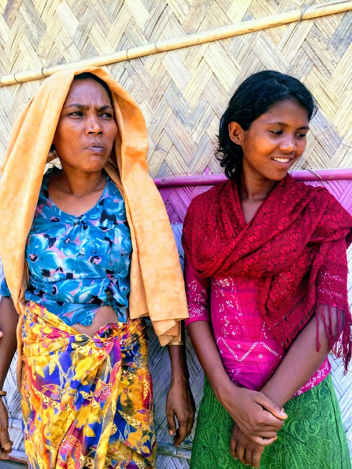
Empowering Local Communities
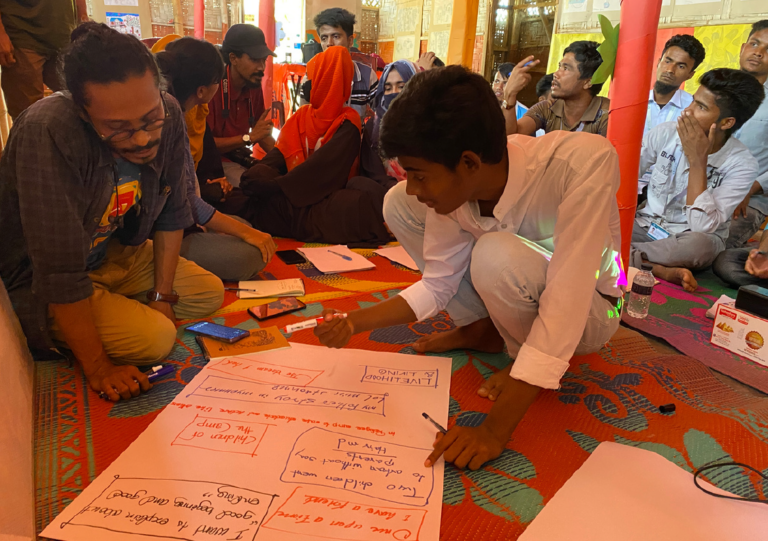
Documenting Rohingya Stories
Since 2022, GIJTR is working with Historias en KM (HEK), a documentary production company in Colombia, to find innovative ways to document the stories of Rohingya refugees living in the camps of Cox's Bazar. As part of this partnership, representatives from HEK and GIJTR traveled to the camps in March 2023, where they worked alongside community members and local Bangladeshi artists to understand the needs related to documentation for Rohingya refugees and community members. By the end of this visit, and after some introductory sessions on documentation and production, Rohingya and Bangladeshi members launched AUNTORCHOKKHU Productions, a team currently working on short documentary films that capture people's lives in the camps.
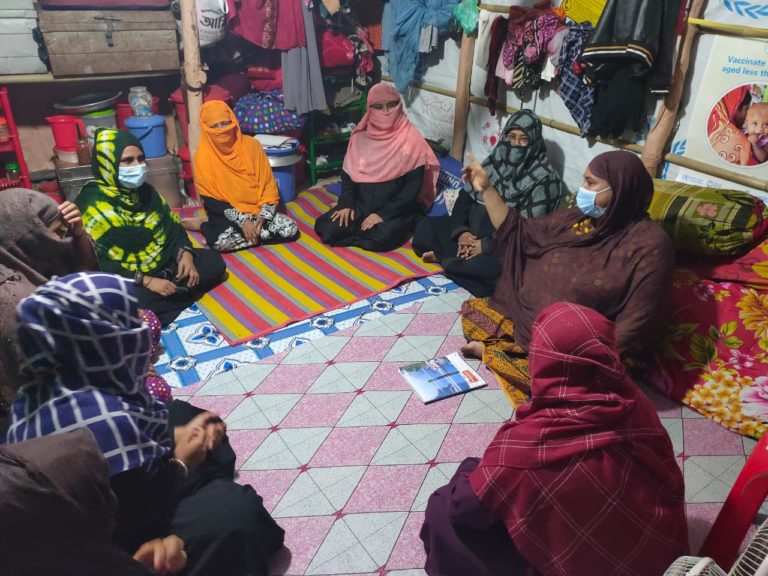
For the Record: Rohingya Women Tell Their Stories
Given that women and girls are disproportionately affected by conflict, and that in recent months there has been a spike in domestic violence reported in Rohingya camps in Bangladesh, the GIJTR is working to ensure that women’s voices are not lost in truth and justice initiatives.


